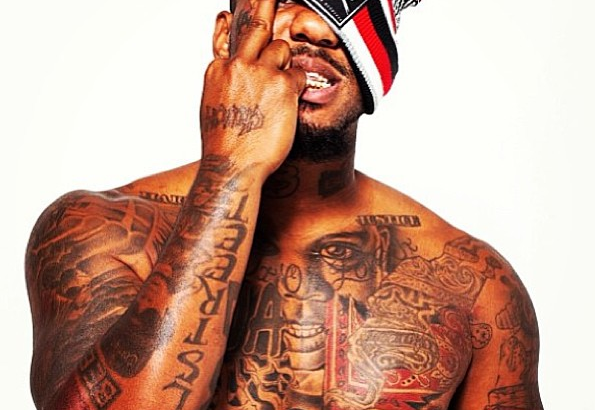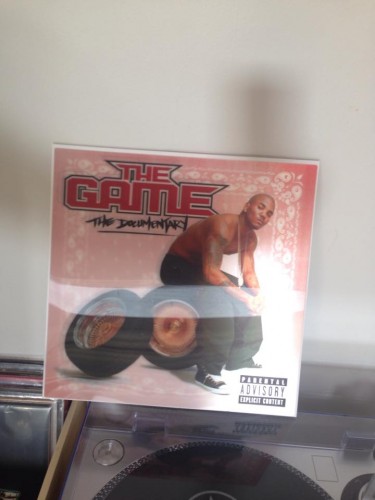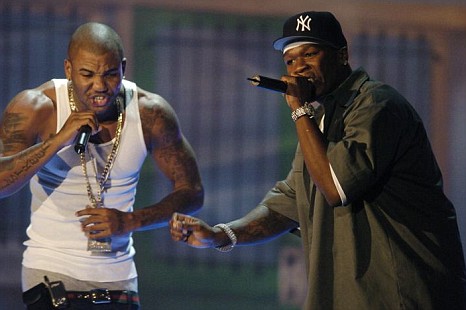As an individual who needs to constantly be reminded that he is in fact, no longer a teenager, it’s hard for me to look back on 2005. Not only was this the year that I would be graduating high school, and thus beginning my slow march towards the inevitability of adulthood, but it was also the year I turned 17.
To mark the occasion, my best friend’s parents, who were long time family friends, would usually give him $50 to give to me (as my parents would do for his birthdays) instead of purchasing me a real gift. In more innocent times, that money would go towards a DVD or some other bullshit. However, as we were both by that stage well into the socially acceptable drinking age, the money would usually go towards booze (for us) and cigarettes (for me). On this birthday, apart from the customary $50 he also threw me a bootleg (because we sure as fuck weren’t making CD-buying money) of an album titled The Documentary.
After laughing at an artist giving himself the moniker The Game, I began to listen to my friend rant about how good the album was, how it was exactly the type of west-coast music we grew up listening to, only it was new!
Straight off the bat, The Documentary grabbed me as some of the best shit I’d heard since 2Pac. Don’t bother rushing off to list me a bunch of artists that dropped good albums around the same period of time. For two years straight, The Documentary was the album I’d be pumping through my cheap headphones.
Looking back at it through slightly more music savvy eyes, it’s relatively easy to see why the album was such a grand success for Game. The music production was off the charts, which is usually the case when you end up having some of the best in the business produce for you. The likes of Dr. Dre, Timbaland, Scott Storch, Just Blaze and even Kanye West all played an integral part, ensuring that from start to finish the album had the head bopping west-coast feel that made it hard to forget, and more to the point, had the listener immediately hooked.
The who’s who of the rap game litters the entire album, notably featuring 50 Cent on a number of songs, lending his trademark voice to some of the most critically successful tracks, including Hate It or Love It and How We Do. Eminem was in there too, throwing in a verse which, although sub par, still allowed Game to declare that, “Em just killed me on my own shit”, which, in fairness, is true. Faith Evans, Mary J. Blige, Busta Rhymes, Nate Dogg and Tony Yayo are all in their element, too, bringing a myriad star power to the seminal record.
Pinpointing the exact reason the album resonated with me is difficult. Like many other Australians listening to American hip-hop, it would be a stretch to declare that I could relate my real life circumstances to the ones portrayed in a gangster rap album. Although, I would be lying if I said that as a teenager I didn’t feel like it did. At no point was I disillusioned enough to think that our lives were similar, but it wasn’t hard to change a few things around and relate to the emotion put into some of the songs and relating it to my own. Lord knows I’d been doing it for years with 2Pac.
Start from Scratch was absolutely one of those songs. Game, who was most likely intoxicated during its recording, essentially runs through some of the things he would do if he could turn back time.
“Homey if I can make ’94 today,
I’d tell Eazy and Dre to bring back N.W.A,
I woulda told ‘Pac not to stomp out Orlando,
Told Puffy and Big about the Rampart scandal,
I got too many dead homies, fuck a rap career,
I’d give anything in the world to bring back my nigga Tear”
While the song follows in the same vein of the rest of the album namely that it’s littered with prominent hip-hop references, it also relates to a “what if” scenario which I feel almost everyone thinks about from time to time. The idea of, “of only I’d known then what I know now” is something that to this day still pops into my head from time to time, and is one which is somewhat haunting. Game’s emotion is easily felt throughout the track and without a doubt made me feel like it wasn’t just something he made for the sake of adding another song to the album, but rather something that he had to get off his chest. A genuine feeling and emotion which he translated into words.
Bangers like How We Do and Higher soon became the anthems to youthful pre-drinks and served as the catalyst to many memorable nights of drinking and partying. A friend who now lives in London, and who I hadn’t seen for a number of years visited me a few months back, and absolutely flipped his shit when I put on How We Do, prompting the two of us to reminisce about all the crazy shit we did when we were younger and less responsible, while the album played in the background.
Dreams, produced by Kanye West, instilled the idea of striving to reach your potential and the satisfaction you get when you finally do.
“Daydreamin’ yesterday, dozin’ off backstage,
I thought I saw Eazy talking to Jam Master Jay,
So I walked over, heard Jam Master say,
“It’s a hard knock life, then you pass away”,
They say sleep is the cousin of death, so my eyes wide open,
Cause a dream is kin to your last breath”
I found these lyrics to be positive and melancholy at the same time. Putting emphasis on the fleeting nature of time, and reaffirming its status as something precious which needs to utilised before it is lost.
Needless to say, the album in its entirety made an impact on my late teens, and subsequently shaped, to some extent, my approach to the early 20s. If I didn’t have such a connection to the album, and was forced to look at it through fresh eyes, I probably wouldn’t think it was that great. There are plenty of areas in which the album is lacking and undoubtedly you can read all about it in a bunch of other reviews from back in the day.
For me, The Game’s first studio album will always have a special place in my music library. His guttural and occasionally angry delivery, mixed in with his contemplative tracks, perfectly blend my favourite things about rap music, emotion and storytelling. For those not on the up and up regarding hip-hop history, the album is rife with bits of trivia relating to important points on the rap timeline. For a 17-year-old me, it was the perfect work, which allowed me to transition from listening to albums that were ten years old, to branching out into newer rap albums and sparked my need to learn about everything that is hip-hop.



